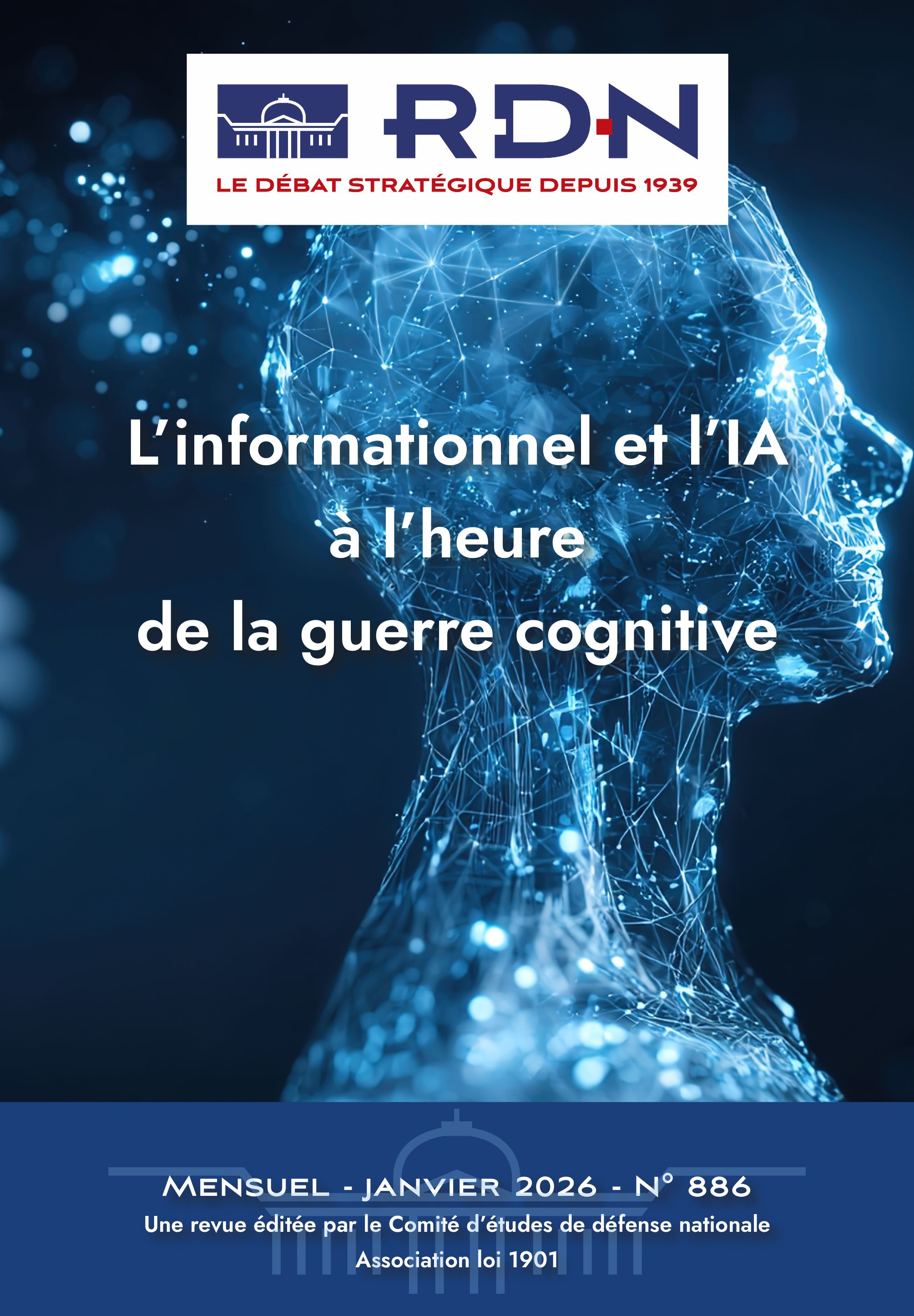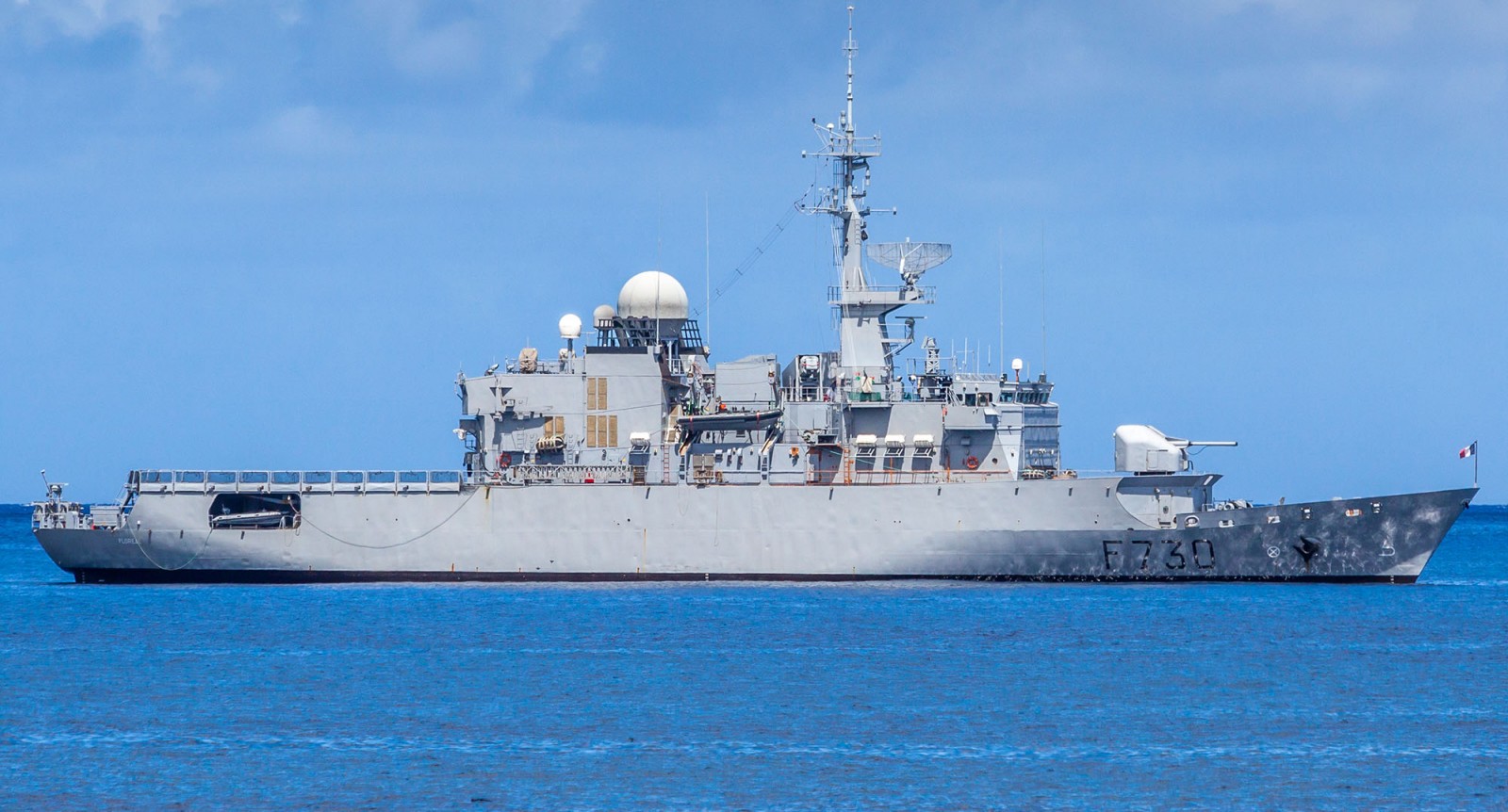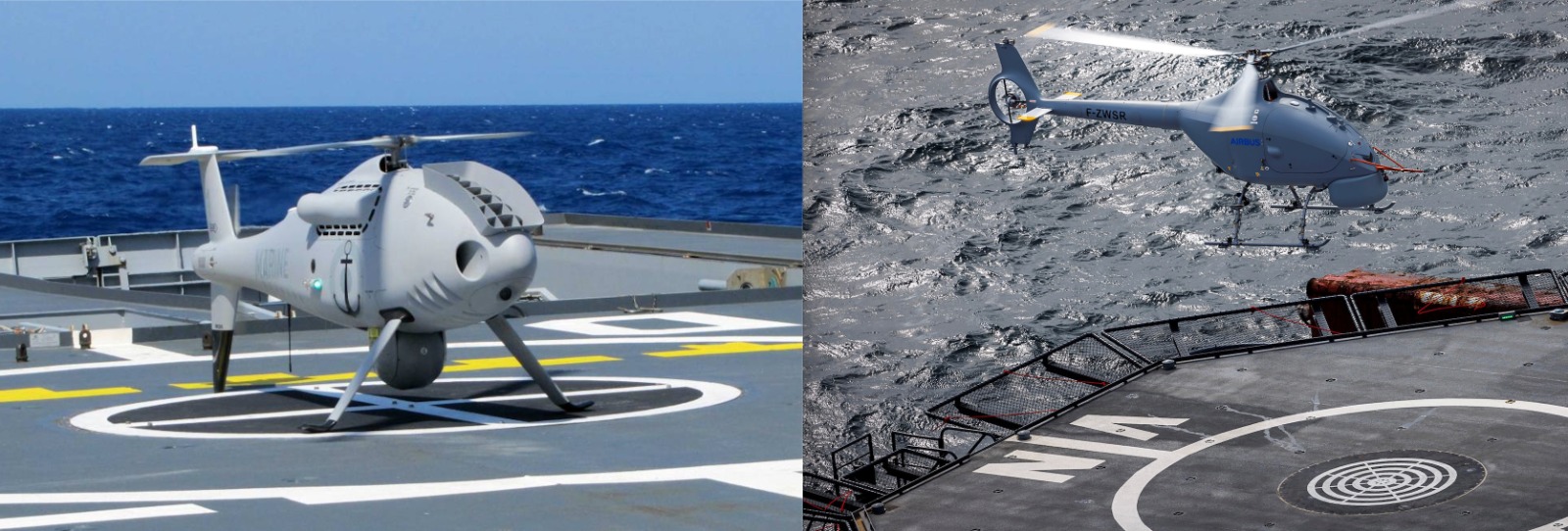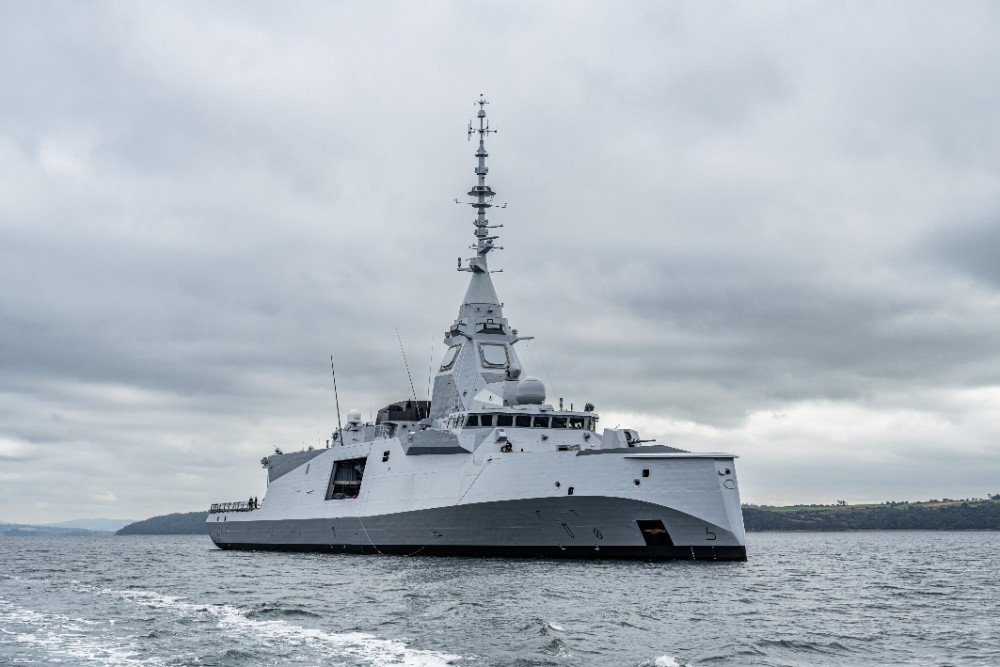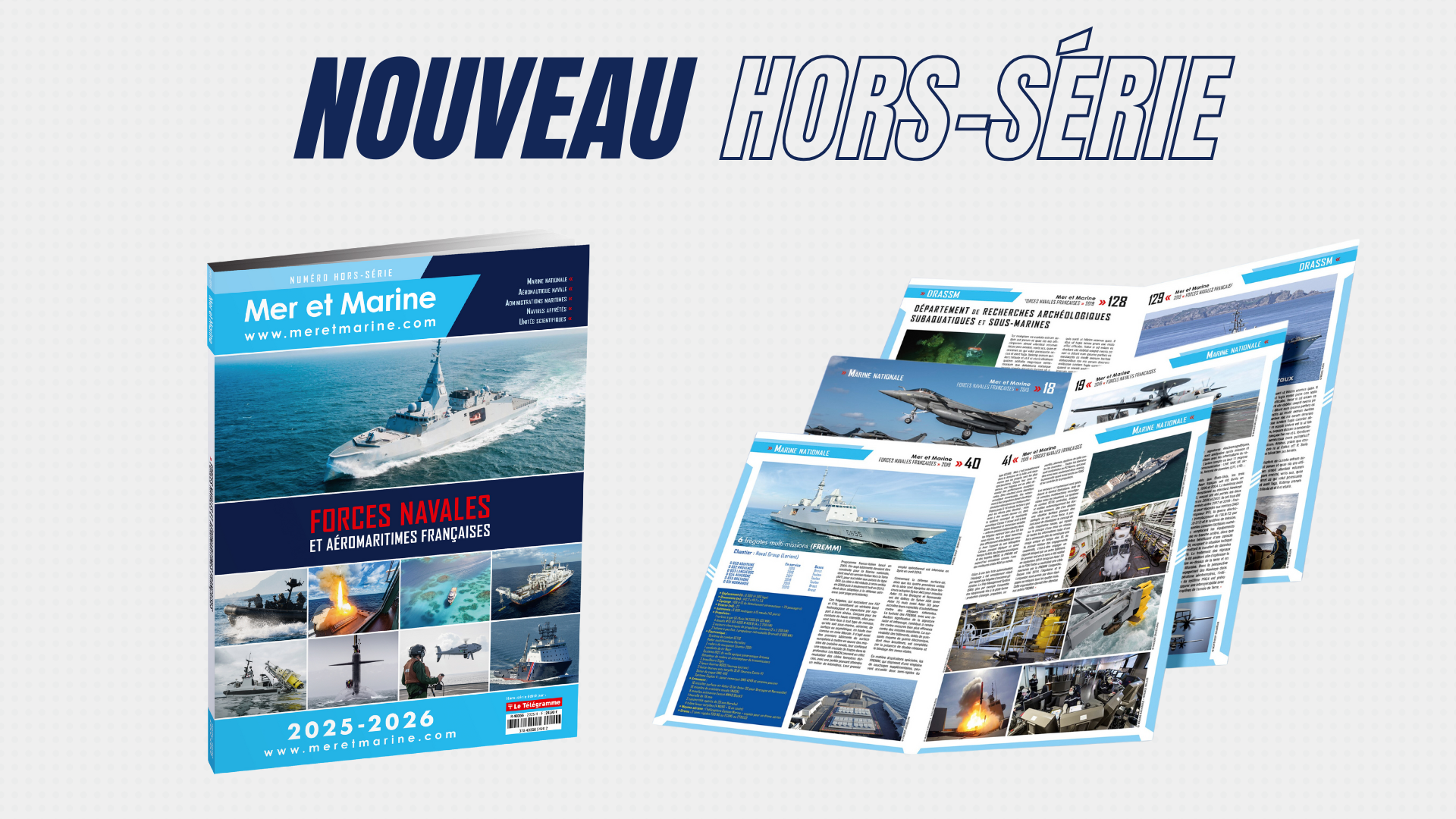Abstracts
Articles published in the French edition of RDN this month
Fifty years after Essai sur la défense - Xavier Sallantin
In this complex article the author offers us his view of the future of humanity, a quest on which he first set out some fifty years ago. His task was informed by the inevitability of conflict, and its foundation was the rapid advances in science which gave an insight into the unpredictable events which have fashioned our universe. The quest enlarges on the logic of the chance encounters which resulted in the emergence of matter, of life and of humanity, and which point to the achievement of some final harmony. This unconventional approach marks the intellectual journey of an inspired researcher.
Trends and recent developments in economic warfare - Alain Juillet
The current fraught financial climate demonstrates the extent to which the techniques of economic warfare developed since the end of the Cold War are today affecting nation states. At the centre of every strategy are the issues of intelligence and influence; and the key to every strategy is protection, which needs to be both collective and resolute.
Political reconquest: the imperative for globalization in the twenty-first century - Alexandre Melnik
Credit, the growth engine of the Western world, also seems to be leading to its ruin due to an explosion of disproportionate and criminal developments in its use. Sovereign debt is bringing down governments. Europe and the USA are unequal partners faced with a common disorder, which makes it essential to return to a common political approach to economic globalisation.
The unsustainable frivolity of globalized finance - Hélène Clément-Pitiot
The failure of the international monetary system which emerged from the breaking down of the Bretton Woods Agreements has been sudden: the symptoms have been economic crises, monetary wars and predatory commerce. Are the strategies which attempt to adapt to this situation themselves sustainable?
Integrating criminality into the field of strategic threats - André-Michel Ventre
Globalization has highlighted illicit activities which have transmuted into major international organized crime, and which have grown rapidly to the point of becoming economic realities which now compete with States and other major operators in the world economy. The realities of the marketplace and the massive growth in financial crime clearly show us the risks we face, and call for a collective response in the face of this strategic threat.
2008-2012: the new strategic challenges - Benoît d’Aboville
The economic and financial crisis is accelerating the recasting of the international strategic scene: the central elements are those of European strength relative to Asia and the United States, and the risk of European marginalisation. The result is some new challenges for our country. Many of the statements in the 2008 Livre Blanc remain relevant but need to be supplemented, notably those which define the respective roles of the EU and NATO. Both organizations are at a crossroads.
Russia in the Livre Blanc, and beyond - Jean-Christophe Romer
Russia’s strategic relationship with France, and more generally with Europe and the Atlantic Alliance, is unlikely to change significantly following the many elections in the near future. The Afghan question, energy security and the relationship with China will remain determining, and underline the importance of anchoring Russia to the West.
A novel strategic context? - Yves Boyer
Globalization seems to have taken part of Europe by surprise: these countries have been tardy in appreciating some of its effects (notably that of scale) which have rendered previous geopolitical frameworks obsolete. If they are to overcome the effects of strategic surprise and the abstention which these arouse, they need to demonstrate more creativity, and be ready to seize their opportunities in a form of globalization which demands a real capability of waiting for the main chance, and a real predilection for action.
The Great Crisis, the West and national defence - Henri Hude
The West is experiencing its most serious crisis since 1929. Due to a neoliberal dynamic this crisis of economic capitalism is destabilising the world, and more generally discrediting the entire Western economic model. The grave threats which result justify the need for profound reform, in order to rediscover the common roots of a Western civilization which has lost its way.
Cyber-defence: towards an indirect digital strategy - Bertrand Boyer
This original study links the strategic language of nuclear power with that referring to digital power. It demonstrates the limits of the parallel between nuclear and digital war, and outlines some possible combat strategies for cyberspace.
The robotisation of the battlefield(2/3): the major characteristics of robots - Michel Yakovleff
The morphology of combat robots on the battlefield can be defined in terms of role played, dimension, appearance, mobility and stealth. The author gives us a fascinating analysis.
Among the books: diplomacy, diplomatic memoirs and international affairs - Eugène Berg
The diplomat Eugène Berg, a long-time contributor to RDN, shares some of his personal intellectual references with us. His erudition gives us an insight into the arcane world of diplomacy, and the remarkable careers of some of its dedicated servants who have marked the history of our country, and who lived through key moments in the histories of Germany and South Africa.
Kosovo, the real cost of defeat - Philippe Kossowski
The author has produced a serious study of the history of Kosovo within its Balkan environment. He deplores the fact that the normalisation of relations with Serbia within the EU and the weight of demography within the mosaic of former Yugoslavia have combined to deprive Serbia of its cultural roots.
Tibet: what is at stake for China? - François Lafargue
Tibet is today considered by China as an autonomous geostrategic space. There are many reasons why China could never relax its long-time grip on Tibet without running the risk of provoking further fissures in the State: among them are Tibet’s role as the fresh water supply of South Asia, and its mineral resources. The author explains Chinese intransigence when it is faced with the idea of any form of secession.
Is a holistic approach to Sun Tzu possible? - Yann Couderc
In this new submission, the author explores what is revealed by a holistic approach which includes the whole of Sun Tzu’s much quoted The Art of War. He takes advantage of Chinese culture and its special symbolism to discern, under the famous aphorisms, the more general lessons set out by its author. This new way of approaching the work offers some useful revelations, even if it cannot be considered the definitive key.

